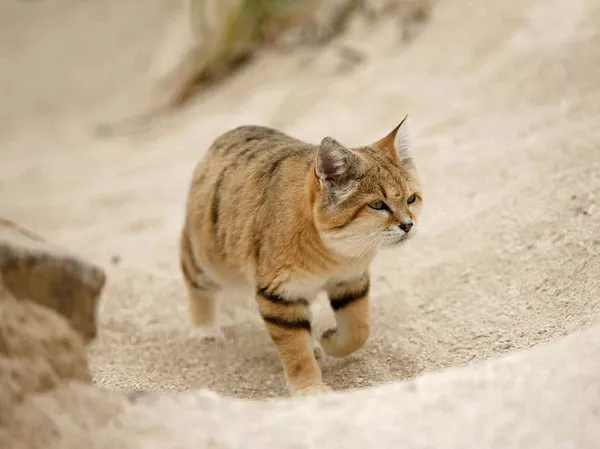The debate over whether Cornish Rex cats can go outside is one that often divides cat owners and enthusiasts. These unique feline companions possess a distinctive appearance, characterized by their curly, wavy fur and slender bodies. While the allure of allowing your Cornish Rex to explore the great outdoors is certainly enticing, it’s essential to consider various factors that come into play. In this article, we will delve into the question of “why can’t Cornish Rex go outside” and explore the vital reasons behind this decision.
1. Vulnerability to Environmental Hazards
One of the primary reasons why Cornish Rex cats should not be allowed to roam outdoors is their heightened vulnerability to environmental hazards. Their delicate nature makes them more susceptible to various dangers lurking in the outdoors. Cornish Rex cats have thin and fragile fur that provides minimal protection from the elements, making them more prone to temperature extremes. Additionally, their slender build and lightweight frame can render them less capable of defending themselves against potential threats like larger animals or aggressive strays.
2. Sun Sensitivity
Cornish Rex cats are renowned for their sensitivity to sunlight. Their unique coat, which lacks a protective undercoat, is more akin to human hair than traditional cat fur. This lack of insulating fur can cause them to be more sensitive to the sun’s harmful ultraviolet (UV) rays. Prolonged exposure to sunlight can lead to sunburn, skin damage, and even increase the risk of skin cancer in these cats. This is a crucial reason why Cornish Rex cats should not be allowed to go outside, especially during sunny days.
3. Allergen Exposure
Another reason why Cornish Rex cats are better off indoors is their heightened susceptibility to allergens. Due to their minimal fur coverage, their skin comes into direct contact with various allergens, including pollen, grass, and other outdoor irritants. This can result in skin allergies, itching, and discomfort for the cat. Furthermore, Cornish Rex owners with allergies may find that their cats, when allowed outside, carry allergens back into the home, exacerbating their own allergic reactions.
4. Risk of Theft or Loss
Cornish Rex cats are a sought-after breed due to their distinctive appearance and charming personalities. Allowing them to roam outside can put them at risk of theft. There have been instances of valuable cat breeds being stolen by unscrupulous individuals who seek to profit from their sale. Moreover, outdoor exploration can increase the chances of a Cornish Rex getting lost, making it difficult to locate and retrieve them safely.
5. Traffic Dangers
Traffic dangers are a grave concern when it comes to outdoor access for Cornish Rex cats. These felines may lack the street smarts that many other outdoor cats develop over time. Their curious and playful nature could lead them into harm’s way, putting them at risk of accidents involving vehicles. In high-traffic areas, the risk is even greater, making it a compelling reason to keep Cornish Rex cats indoors.
6. Parasite Exposure
The outdoors is a haven for various parasites that can pose a significant threat to a cat’s health. Cornish Rex cats are not exempt from this risk. Fleas, ticks, and other parasites can easily latch onto their sensitive skin, causing discomfort and potential health issues. Even with preventative measures, the risk of parasitic infestations remains a valid concern, further emphasizing the importance of keeping Cornish Rex cats indoors.
7. Poisonous Plants and Chemicals
Many outdoor environments contain toxic plants and chemicals that pose a threat to curious cats. Cornish Rex cats, with their penchant for exploration, may be inclined to nibble on vegetation. Ingesting even a small amount of a toxic plant can lead to poisoning. Likewise, chemicals used in gardening and pest control can be hazardous if a Cornish Rex comes into contact with them. By keeping them indoors, you can protect them from accidental exposure to these dangers.
8. Infectious Diseases
In addition to physical dangers, outdoor cats are at higher risk of contracting infectious diseases. Stray or feral cats, which may not receive regular veterinary care, can transmit diseases like feline leukemia virus (FeLV) or feline immunodeficiency virus (FIV). These diseases are highly contagious and can lead to severe health problems or even a shortened lifespan for a Cornish Rex. Keeping them indoors reduces the risk of exposure to such diseases.
9. Impact on Local Wildlife
Cornish Rex cats, like all cats, have a natural instinct for hunting. Allowing them outdoors can have a detrimental impact on local wildlife populations. Birds, rodents, and other small animals may fall victim to a Cornish Rex’s hunting prowess, disrupting the local ecosystem. Keeping them indoors helps protect both the cat and local wildlife.
10. Encouraging Indoor Enrichment
Finally, another important reason why Cornish Rex cats should remain indoors is the opportunity for indoor enrichment. With their playful and active personalities, these cats can thrive in an indoor environment with plenty of toys, climbing structures, and interactive playtime. By creating a stimulating indoor environment, you can provide your Cornish Rex with mental and physical exercise that meets their needs while keeping them safe.
In conclusion, the question of whether Cornish Rex cats can go outside ultimately boils down to their unique characteristics and the inherent risks posed by the outdoor environment. Vulnerability to environmental hazards, sensitivity to the sun, allergen exposure, theft or loss, traffic dangers, parasite exposure, poisonous plants and chemicals, infectious diseases, impact on local wildlife, and the opportunity for indoor enrichment are all essential factors to consider when making the decision to keep these distinctive feline companions indoors. While the allure of the outdoors is undeniable, the safety and well-being of your Cornish Rex should always be the top priority.
Related Topics:
A Pricing Guide to Cornish Rex Kittens
The Enigmatic Charm of the Cornish Rex: Unveiling the Price of Elegance
The Enigmatic Cornish Rex: A Unique Feline Breed with a Curly Coat

























